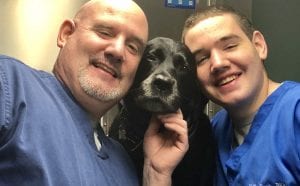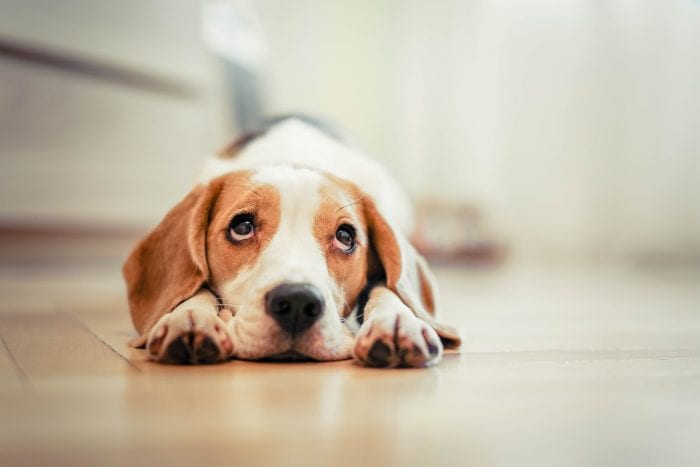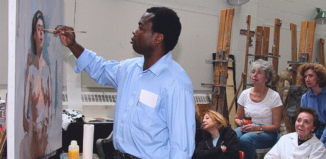Ask the Vet: Potty training your puppy
By Matthew Kearns, DVM
 COVID is terrible and let’s face it: sheltering in place, and social distancing stinks!!! One silver lining is I have seen a large number of new puppies at my clinic and new puppies need potty training.
COVID is terrible and let’s face it: sheltering in place, and social distancing stinks!!! One silver lining is I have seen a large number of new puppies at my clinic and new puppies need potty training.
Understanding the physiology of elimination in puppies is crucial. Puppies have a smaller anatomy and, because their bladder and bowels are physically smaller, they fill quicker. Some trainers recommend going outside with the puppy every hour in the beginning. However, a good rule of thumb is, take the number of months old the puppy is plus one hour. For example, if a puppy is two months old, he or she can last two plus one, or three hours total (puppies can usually last longer at night).
Also, the act of drinking and eating stimulates their bladder and bowels, so try to take them out both before and after meals.
The old saying, “you get more bees with honey than vinegar” is true. Positive reinforcement goes much farther than negative. Either go outside with the puppy or be present when they go in their designated spot. I personally feel it is okay to train a puppy outdoors at a very young age if one is careful. If you take your puppy outside, make sure he or she is only allowed in an area that is clean and free of anything potentially toxic, material that could cause a choking episode or potential intestinal obstruction, and free of ticks or excrement from stray or wild animals.
We can also use commands such as “make a pee” or “make a poo” and when the puppy goes give lots of praise, a treat, or both. You may sound a little mentally unbalanced to your neighbors in the beginning, but it pays off in the long run.
If your puppy has an accident and you do not catch him or her in the act, do not scold, but rather just clean it up (even if you only leave the room for thirty seconds). The puppy will not remember that they did it, but will remember a screaming owner. This will cause the puppy to be afraid of you and look for a more discrete place to go.
If you do catch your puppy in the act it is okay to say “NO” or clap your hands to get their attention, but never spank them. Rather, quickly pick your puppy up, carry them outside to finish, and give them lots of praise if they do. When you do clean up use something to neutralize the odor like an enzymatic cleaner.
I hope this information helps. My next article will be on crate training, an excellent tool to teach the puppy to hold their bladder and bowels.
Dr. Kearns practices veterinary medicine from his Port Jefferson office and is pictured with his son Matthew and his dog Jasmine. Have a question for the vet? Email it to [email protected] and see his answer in an upcoming column.







